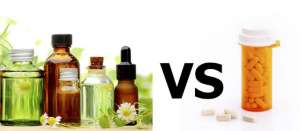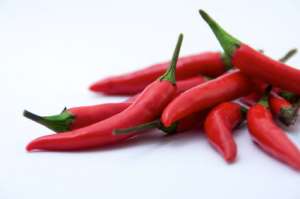But, what if we no longer had these medicines to rely on? Thanks to antibiotic resistance, we might very well be looking at a future without many of them.
Antibiotic and antimicrobial resistance
The World Health Organization (WHO) defines antibiotic resistance as, “resistance to antibiotics that occurs in common bacteria that cause infections.” Going a step further, antimicrobial resistance is, “a broader term, encompassing resistance to drugs to treat infections caused by other microbes, as well as parasites, viruses, and fungi.” When microorganisms become resistant to standard treatment, the results can be devastating, including: prolonged periods of illness, more expensive health care costs, and an increased risk of death.
“The loss of antibiotics due to antimicrobial resistance is potentially one of the most important challenges the medical and animal-health communities will face in the 21st century,” said Dr. Cyril Gay, the senior national program leader at the United States Department of Agriculture’s Agricultural Research Service.
According to a report published in The Review on Antimicrobial Resistance, the government of the United Kingdom estimates that by the year 2050, more than 10 million deaths and 100 trillion dollars in global health care costs will have resulted from drug-resistant microbes.
What are essential oils?
The International Organization for Standardization defines an essential oil as, “a product made by distillation with either water or steam or by mechanical processing of citrus rinds or by dry distillation of natural materials. Following this distillation, the essential oil is physically separated from the water phase.”
Essential oils play a pivotal role in the health and survival of plants. While they are still contained in the plant, they adapt their chemical composition to counter potential hazards in the external and internal environment. They do this in a number of ways:
- Attracting pollinators like insects, or acting as dispersal agents
- Releasing chemicals that inhibit the growth of other plants in the area around them
- Serving as a defense mechanism by releasing chemicals to repel predatory creatures, like insects and animals
- Protecting the plant from invasion through the use of their antifungal and antibacterial properties
Research on the effective role of essential oils in treating human health conditions seems to be a growing field of interest. There are many studies currently underway, and many have already been published showing success in the fight against microbes.
An Italian study performed in 2011 showed that using a combination of clove and thyme essential oils to treat bacterial vaginosis was just as effective as the conventional antibiotic treatment. In another study, by the Good Shepherd Medical Center in Texas, it was revealed that staph-infected wounds had a markedly faster healing time when treated with the vapors of tea-tree oil versus usual methods.
Also, in a Canadian study, it was found that MRSA could be removed from the skin by cleansing with tea-tree oil, with equal effectiveness as conventional treatments that bacteria now appears to be developing a resistance against.
In laboratory testing, essential oils have repeatedly been found to have great success at fighting a range of pathogens, such as E. coli and Staphylococcus aureus, among other strains of bacteria. Both by themselves, and when used in a combination with antibiotics, essential oils consistently show impressive results.
Researchers hypothesize that one reason for the success of essential oils may be that they weaken the cell wall of resistant bacteria, inflicting damage or killing the cell.
The future of medicine
 According
to Dr. Nicole M. Parrish, associate professor of pathology at the Johns
Hopkins University School of Medicine and associate director of medical
mycobacteriology at The Johns Hopkins Hospital, the situation is
urgent. When she and her colleagues test to find the appropriate
medication for a patient, more often than not, they are finding that
once-effective antibiotics are no longer working.
According
to Dr. Nicole M. Parrish, associate professor of pathology at the Johns
Hopkins University School of Medicine and associate director of medical
mycobacteriology at The Johns Hopkins Hospital, the situation is
urgent. When she and her colleagues test to find the appropriate
medication for a patient, more often than not, they are finding that
once-effective antibiotics are no longer working.“We feel helpless in the face of this growing threat, and the answer as to why we have not made more progress on this front is simple: economics. Unfortunately, the ‘specter’ of monetary gain overshadows the perspective from ‘the trenches’,” said Parrish.
Parrish explains that essential oils have some of the most powerful antimicrobial compounds in existence, and with further testing and research, they could lead to a whole new class of medications.
Of course, unless the situation is dire, using essential oils in their pure, natural state is preferable. To learn more about how essential oils may help combat minor bacterial, viral, or fungal conditions, it can be very beneficial to talk to a natural health professional you trust.
-The Alternative Daily




 Hot
peppers, including cayenne, chiles, serranos, jalapenos and all your
frightfully-hot favorites, are also high in antioxidants, which help
keep oxidative stress and inflammation down. Chronic inflammation has
been linked to accumulation of belly fat, along with many other
illnesses. These peppers are also great for detoxifying the body – an
important step in healthy weight loss.
Hot
peppers, including cayenne, chiles, serranos, jalapenos and all your
frightfully-hot favorites, are also high in antioxidants, which help
keep oxidative stress and inflammation down. Chronic inflammation has
been linked to accumulation of belly fat, along with many other
illnesses. These peppers are also great for detoxifying the body – an
important step in healthy weight loss.